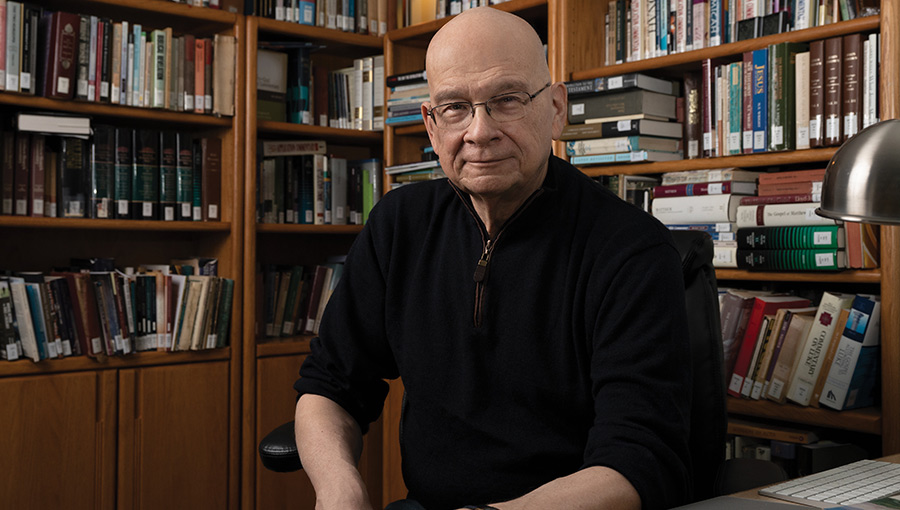Tim Keller's Final Articles
By Chuck Hetzler
Two of Tim Keller’s final written pieces, published just weeks before his passing on May 19, 2023, were on the subject of revival. One such article was directed to the church at The Gospel Coalition (March 17, 2023) and the other offered to all Americans in The Atlantic (February 5, 2023).

The Atlantic piece did not garner the attention that one would hope in light of the popularity and reach of the magazine. Given the gravity of the circumstances, perhaps American Christians should more deeply reflect on Keller’s parting sentiments.
Revival was part of Keller’s story. He founded Redeemer Presbyterian Church in Manhattan, NY in 1989, and the church grew to host about 5,000 Sunday attendees at its different sites in NYC. That number might be modest for churches in other regions of the US, but it’s an astounding congregation for a church in the Northeast. Keller assigned Redeemer’s growth to revival, especially during its earlier years.
Keller also regularly reflected on revival in church history, especially the First Great Awakening. And in addition to his love for the lost, Keller carried a desire to see Christianity influence the larger culture, which also fueled his interest in revival.
Thankfully, Keller acknowledged the uncomfortable truth of Christianity’s decline in our nation and wanted to correct the problem. He even pointed out why a non-Christian audience, like many of The Atlantic’s readers, should care about the resurgence of American Christianity. When the gospel thrives, so does the surrounding society. Even today, many of the benefits of American life, like hospitals, colleges, social services, human rights, and the ability to individually pursue life, liberty, and happiness, are a direct result of Christianity and periodic rapid expansions of it throughout America’s revivals and awakenings, not just the First Great Awakening.
In his typically thoughtful style, Keller’s The Atlantic article presented five favorable “factors” that can lead to church growth in America. They are:
- Change can come if we learn how to speak “compellingly to non-Christian people,” and talk to them in ways that aren’t “strange and offensive” to them.
- Change can come if we “unite righteousness and justice.”
- Change can come if we "embrace the global and multiethnic character of Christianity.”
- Change can come if we strike “a dynamic balance between innovation and conservation.”
- Change can come because the modern culture is “unquiet” and discontent with itself.
After listing these five factors that Keller considers favorable for church growth, he concedes that these factors “will not necessarily trigger a renewal” (aka, a revival). So he moved on to identify a second set of solutions that he called “triggers” that will bring the sea change for the faith in our nation.
Keller’s three triggers for the revival of Christianity in America are as follows.
- “Escape from political captivity”
- “Union of extraordinary prayer”
- “Distinguishing the gospel from moralism”
Several of Keller’s “factors and triggers” pertain to passing cultural issues that may be worth further investigation, but two of them deserve primary attention since they trace back so clearly to overwhelming biblical and historical grounding. They are, “union of extraordinary prayer” and “distinguishing the gospel from moralism.”
A.T. Pierson (another American Presbyterian minister, 1837-1911) said, “There has never been a spiritual awakening in any country or locality that did not begin in united prayer.” And of course, the gospel of Jesus Christ must be proclaimed widely and clearly for a revival of Christianity. For how else can faith come unless Christians and non-Christians hear the word of Christ (Romans 10:17)?
Who most needs to heed Keller’s call for united, extraordinary prayer and bold, widespread gospel proclamation? All American Christians bear this responsibility, but Christian ministers and pastors most of all. It is upon us (myself included) as ministers to model, teach, encourage, urge, and support Christians to this kind of unity, prayerfulness, and courageous preaching.
Are American pastors insisting on regular prayer meetings at churches and in homes or occasional days of prayer or all-night prayer meetings? Moreover, are they living this way themselves, setting an example for the flock?
Are American Christian ministers boldly asserting as Paul did that God “commands all people everywhere to repent” (Acts 17:30)? Are they plainly stating as Jesus did that every person must be born again or else they will not see the kingdom of heaven (John 3:3-5)? Are they training their congregants to do the same?
Church leaders and Christian ministers must seriously weigh these admonitions, practice them personally, and lead in practical ways to pull American Christianity from its lackluster doldrums. Two American ministries taking up this charge are Christian Union and Heritage Pastors Association. They practice and call all Christians and pastors to these higher standards in what they refer to as the Three Spiritualities for Drawing Close to God. These spiritualities are not necessary for one’s salvation and they do not earn God’s blessings but they are His chosen means of grace to attract His presence and power. Or as Keller put it, “trigger” a reviving of God’s gracious work among us.












